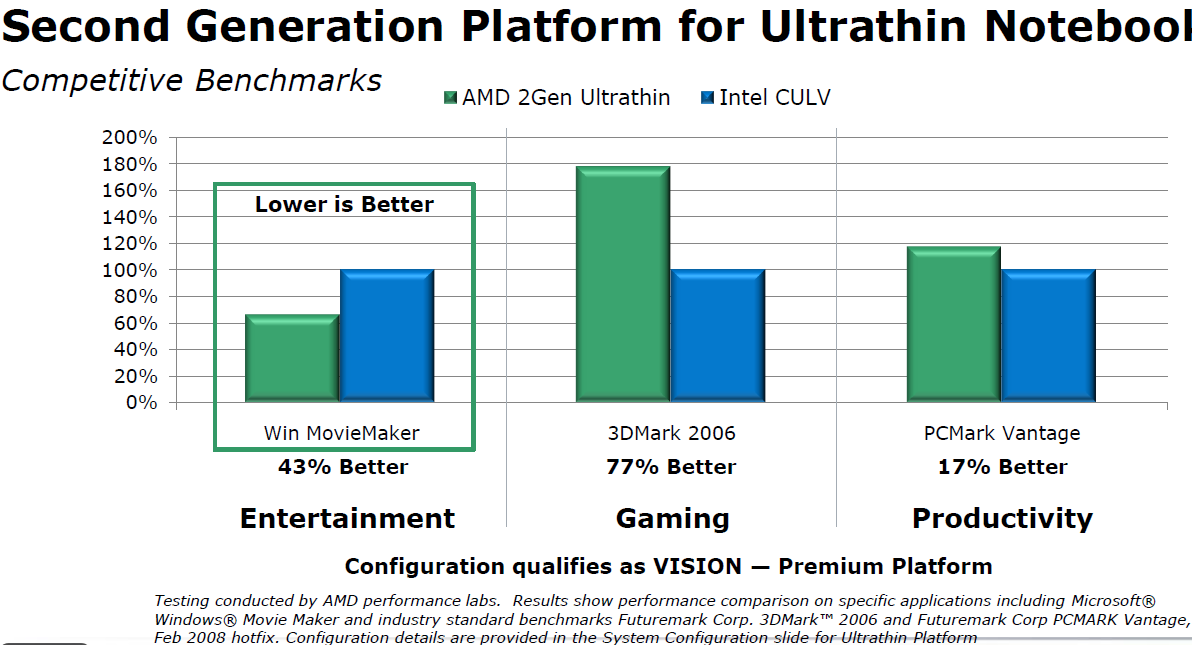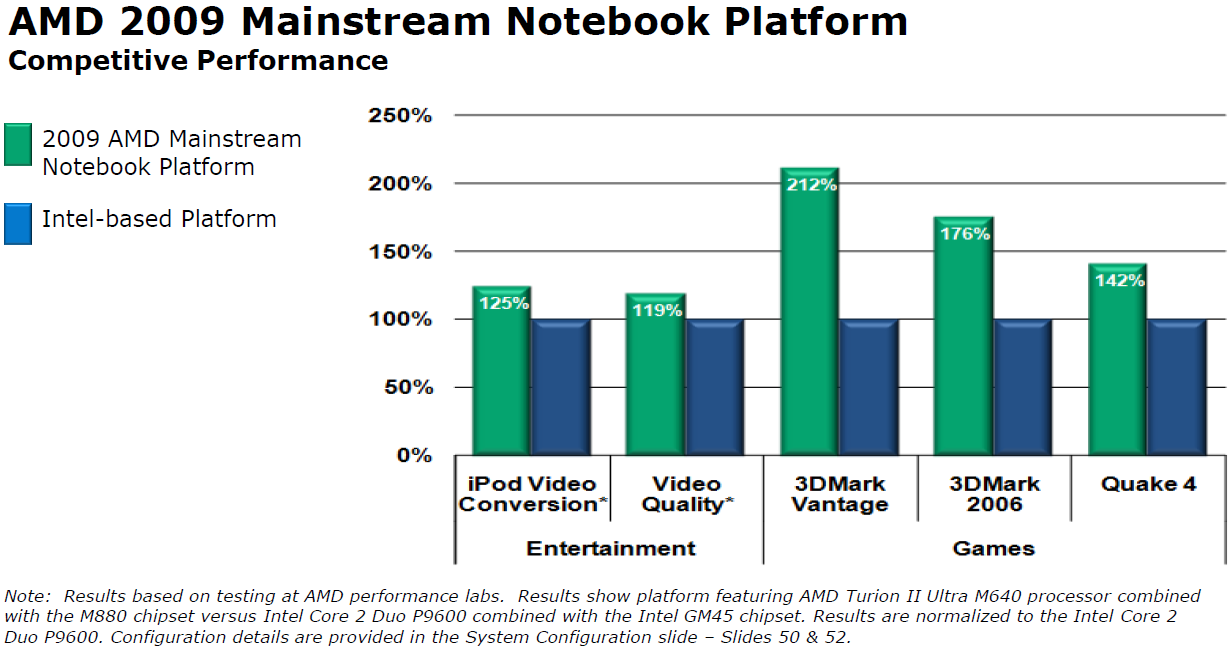AMD's Slides Showing That It's Faster Than Intel
News
By
Marcus Yam
published
Those are some mighty fine numbers you've got there, AMD.
Add us as a preferred source on Google
Last week when AMD officially launched its new ultrathin mobile platform codename Congo and the mainstream notebook platform codename Tigris, the chipmaker also provided in its marketing material benchmark charts showing what it believes are key performance advantages over Intel's offerings.
While we won't be able to confirm any of these performance characteristics until we get our hands on test platforms, but if these numbers are true – particularly for the ultrathin category – then we're excited to see competition in the mobile segment.
Image 1 of 2
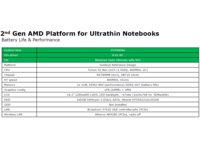
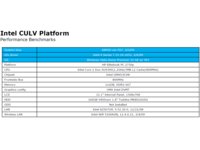
Image 1 of 2
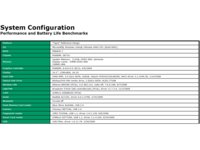
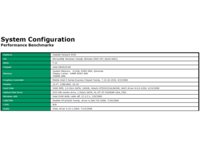
Stay On the Cutting Edge: Get the Tom's Hardware Newsletter
Get Tom's Hardware's best news and in-depth reviews, straight to your inbox.
Marcus Yam served as Tom's Hardware News Director during 2008-2014. He entered tech media in the late 90s and fondly remembers the days when an overclocked Celeron 300A and Voodoo2 SLI comprised a gaming rig with the ultimate street cred.
41 Comments
Comment from the forums
-
Spanky Deluxe Hmmmm... I can't help but think that these improvements could (largely at least) be explained by GPU acceleration. If the AMD chipsets are using ATI based integrated video chips and its being compared to Intel's chipsets using GMA type video chips then that would certainly explain the "Games" benchmarks and might also explain the encoding "Entertainment" benchmarks if they're using encoders that use GPU acceleration.Reply -
Spanky Deluxe Forgot to add that if this is the case then a more interesting (and in some ways fair) comparison would be against an nVidia based Intel chipset that utilise things such as 9400m integrated graphics chips.Reply -
False_Dmitry_II Which is why nobody should buy something with intel integrated "graphics" and expect it to... do stuff.Reply -
doc70 of course, and if it were intel slides then guess who would be on top...Reply
we need independent reviews. -
Hm, two things: one, AMD used a 1.6 Ghz processor versus a 1.2 Ghz Intel (not exactly a fair comparison).Reply
Two, this says nothing about price, which is just as an important consideration as performance (not saying AMD can give those numbers, just saying that these numbers are not important without a price) -
Miharu 1.6Ghz AMD gaming laptop vs an 1.2Ghz Intel middle-range laptop.Reply
Just the CPU frequency mean around 10-14% more for AMD.
And the video card mean probably the difference in gaming.
And they don't talk about power comsumption.
This comparasion mean nothing!!!
More topic: AMD Q2 Loss Worse Than Expected; Stock Slumps in After-Hours Trading -
Spanky Deluxe Looking at the specs they use there are also a few of discrepancies.Reply
AMD: 1.6GHz vs Intel's 1.2GHz
AMD: 2.5" 5400 rpm hard drive vs Intel's 1.8" rpm drive
AMD: 2x1GB 800MHz RAM vs Intel's 1x2GB 667MHz RAM (Dual channel? Note the Intel CPU supports 800MHz RAM too)
There's also the fact that the AMD machine is a .1" screen based laptop vs Intel's 12.1".
In the mainstream system comparison they don't even mention the CPU clockspeeds tested specifically although looking up the product parts, the Core 2 Duo P9600 is a 2.66GHz part (capable of 1066MHz DDR3 memory instead of the 800MHz DDR2 memory used) and the AMD part is 2.6GHz too so that's close enough, however the benchmarks could still easily be explained by the differing integrated GPUs used. -
Manos This is too crappy. AGAIN they are calculating and comparing with Intel based GPU notebooks. They always do it. Nothing new there. They need to realise that Intel would be like then only if they merged with Nvidia or something. Since AMD isw so strong on the GPU department. And what sucks for them is that they are both so behind in GPUs and CPUs that if Intel merged with Nvidia or anything similar AMD would be screwed up more than they already are, yet on the other hand so would we.Reply
Anyhow, they should stop showing those charts till they include more fair cimbos from Intel's side too for the consumer that isnt aware of the reasons for such difference. -
hellwig As for whether or not the GPU is helping, most likely. However, laptops are judged on system performance, not CPU performance, so these results are just as valid.Reply
And as for using Intel with a NVIDIA chipset, sure you could do that, but Intel does NOT market their product in that way. Especially not with upcoming pinetrail and larrabee products.
